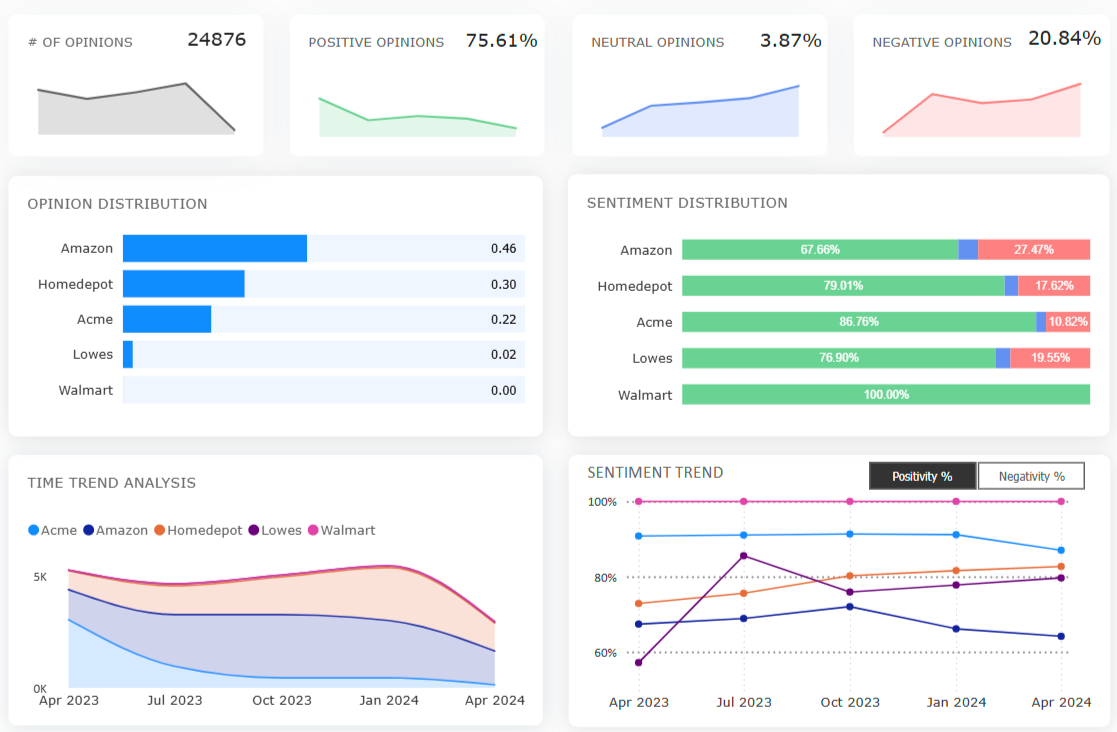🎉 Clootrack recognized by OpenAI for crossing 100 billion tokens in Voice of the Customer analytics →
Read the story


In today's fast-paced business environment, product teams are often racing against time to develop and launch new products. Time is of the essence, and any delay can result in missed opportunities and lost revenue. This is where product insights become invaluable. Product insights can provide teams with a deep understanding of their target market, customer preferences, and feedback on existing products. Armed with this knowledge, product teams can make informed decisions and streamline their development and launch processes, ultimately saving precious time and gaining a competitive edge in the market.
Delivering the right products and improving current products according to customer needs should be done quickly per the changing market trends and customer requirements. Taking a long time to understand customer needs will lead to delivering outdated products, and customers will no longer stay with a brand that doesn't serve what they need at the current time and trends.
So, this is a constant pressure for product managers to stay ahead of the competition. Without quick access to accurate and comprehensive data and insights, it becomes difficult for product teams to work efficiently.
Let's explore the significance of the quick availability of insights in improving current products, overcoming time-related challenges, and delivering the right products.
Product insights obtained through various channels, such as customer feedback, surveys, consumer research, and social media engagement, provide valuable information about what customers want and expect from a product. Quick insights enable product teams to identify changing trends, preferences, and pain points, helping them make informed decisions swiftly.
The time lag faced by product leaders is closely associated with traditional and manual data analysis methods. Engaging in manual data analysis, such as manually sorting through spreadsheets and reports, is time-consuming and prone to errors and biased interpretations. Such delays can hinder timely decision-making and slow down the product development lifecycle.
Quick customer insights obtained through third-party data analytics tools allow leaders to quickly track real-time customer trends and market shifts and predict future trends even before competitors. This will help them to surprise customers by delivering what they are looking for even before they ask for it. This will enhance customer loyalty and give a competitive edge.
A robust data analytics tool can significantly streamline obtaining product insight and enhance decision-making capabilities. These tools leverage automation and machine learning techniques to quickly analyze data points, allowing product teams to gain detailed consumer insight into customer preferences, behavior, and market trends. Using such tools eliminates time-consuming manual analysis, reducing the time needed to obtain actionable insights.
One of the most valuable tools for product leaders and teams is robust data analytics software powered by Artificial Intelligence (AI) and GenAI technologies. By harnessing the power of these tools, product leaders can save considerable time in preparing product strategies while ensuring customer-oriented product development efforts through valuable insights derived from data analysis.
The benefits of data analytics tools include:
AI and GenAI-based data analytics tools enable businesses to efficiently gather, process, and analyze vast amounts of data without much effort. These tools can swiftly identify patterns, trends, and correlations within the data that would be practically impossible to comprehend manually. By automating this process, product leaders can save time that would otherwise be spent on tiresome data collection and analysis tasks.
Data analytics tools equipped with AI and GenAI capabilities provide real-time consumer insights into customer behavior, preferences, and market trends. Product leaders can make informed decisions about product strategy and implementation by accurately capturing and interpreting data in real time. GenAI-based tools provide quick insights in natural language, which is easily understandable by leaders without putting much thought into lots of numbers and their connections with each other.
Product insights manager typically spend significant time conducting market research or hiring a market research agency to shape their strategies. AI and GenAI-based data analytics tools can streamline this process by providing access to relevant data from varied sources. These tools can effectively analyze customer feedback, social media trends, competitor analysis, and industry reports. Consequently, product leaders can quickly assess the market landscape and adjust their strategies accordingly.
AI and GenAI-powered data analytics tools provide sentiment analysis, which helps identify product gaps and areas for improvement. Sentiment analysis helps businesses understand customer satisfaction levels by analyzing emotions and opinions expressed in customer feedback. With this information, product leaders can focus on filling these gaps and delivering products that precisely meet customer expectations.
These tools can forecast customer behavior and product demand by analyzing historical customer data and correlating it with market trends. This foresight allows product leaders to align their strategies accordingly, saving time and resources in trial-and-error practices.
AI and GenAI-based data analytics tools facilitate agile planning by providing real-time visibility into product performance metrics. In real-time, product leaders can monitor key performance indicators (KPIs), such as sales figures, customer satisfaction scores, and adoption rates. This data-driven approach allows swift adjustments to product strategy and timely decision-making, reducing potential delays and optimizing resource allocation.
Product leaders and teams can benefit greatly from leveraging AI and GenAI-based data analytics tools. These powerful tools streamline preparing product strategies while ensuring customer-centric product development through comprehensive data insights. By harnessing the capabilities of AI and GenAI, product leaders can save time, improve decision-making, and deliver products that meet customer expectations effectively.
Read more: Data-Driven Product Insights: Your Anchor in an Uncertain Economic Climate
Analyze customer reviews and automate market research with the fastest AI-powered customer intelligence tool.
